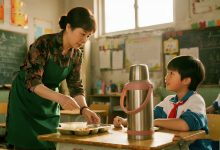Original by Three Flames | Translated and adapted for American readers
Dear readers, this is a true story from our workplace series.
In 2025, over 12 million college graduates will enter the workforce, facing the pressures of identity transformation, employment, relationships, and family life.
Shane Liu once thought that with his parents as his safety net, he could coast through life. But now, with both parents gone, he had become truly alone—a ship without anchor.
The Decision
On November 22, 2024—Shane’s 24th birthday—he made a decision.
Shane took an Uber to the beach, getting out about 200 meters from the shore. He found a rock to sit on and pulled out a bottle of cheap whiskey from his pocket—the last bottle his father had left behind. Shane twisted off the cap and took a swig, immediately choking on tears and snot.
He placed the bottle on the sand and began covering it with handful after handful of sand until it formed a small mound, like a grave. Shane knelt beside the “whiskey grave” and wrote in the sand: “Dad, Mom, I don’t want to live anymore.”
After hesitating for nearly two hours, Shane finally stood up from the rock and walked toward the ocean. In late November in the northeastern United States, the temperature was well below freezing. The icy waves quickly soaked through his shoes and pants. The force of the waves made him stumble. Shane had checked the tide charts before coming—it was high tide.
When the seawater reached the bottom of his down jacket, Shane felt the buoyancy of his clothes. Cold and terrified, he hesitated, afraid to go forward but also afraid to turn back. Forward meant certain death; backward meant returning to emptiness—he could no longer see the shore.
The waves surged with hidden currents. Shane lost his balance and could be swallowed by the sea at any moment.
Three college students on vacation spotted him. They first shouted from the shore for Shane to come back. When he didn’t respond, two guys in black jackets ran toward him while a girl in white stayed on shore to call 911.
Half an hour later, a soaking wet Shane was dragged to shore by the two students. Emergency responders arrived, wrapping him in blankets. A man in his forties patted Shane’s shoulder firmly, saying, “Young man, what’s got you so desperate?”
Shane shivered under the blanket, watching the man’s mouth move without hearing the words. Having brushed with death, Shane felt disconnected from the world, his ears ringing so loudly he couldn’t hear anything.
Fortunately, his phone hadn’t been damaged by the water. The three college students added him on social media, saying they’d like to be friends.
The rescue worker drove Shane home, offering encouragement the entire way. Before leaving, he gave Shane his number, telling him to call if he needed anything.
When the man learned Shane’s parents had passed away, he added, “Brother, if your parents knew what you were doing, they’d be turning in their graves with worry.”
Shane finally met the man’s earnest gaze and replied, “I won’t die. I promise.”
The Graduate
Shane had graduated from a local state university with a degree in Marketing. Like many recent graduates, he wanted to take a gap year and wasn’t in a rush to find work.
He wandered aimlessly, knowing his parents would support him. He could enjoy this transitional period of freedom.
Occasionally, he’d make token visits to job fairs. Good jobs didn’t want him; he didn’t want bad jobs. Hard work was out of the question—in his mind, the more willing you were to suffer, the more suffering life would throw at you.
He never considered what challenges his future might hold, what social difficulties he might face. He’d never even thought about what kind of life he wanted or what he wanted to work toward.
About six months after graduation, his father pulled some strings to get him a temporary position with the city government. It was a contract position paying only about $2,500 a month, but at least the job title sounded respectable.
The department was busy. Shane not only had to do his assigned work but also handle random “extra tasks” that popped up. As a temp worker, his supervisor expected him to be available 24/7, phone always on. Even on days off, he’d get sudden calls.
Starting his career, Shane threw himself into the work with enthusiasm. But inevitably, this led to burnout.
Whenever anything went wrong, leadership would blame Shane. He even became the emotional dumping ground for various department heads. In this environment of constant criticism, where hard work didn’t lead to advancement and effort went unrecognized, Shane finally realized he was nothing more than an errand boy.
As a contract worker, Shane’s salary didn’t come through regular payroll but was paid directly by his supervisor. One month, the supervisor simply forgot to pay him. Shane didn’t dare ask, even wondering if holiday bonuses were meant to replace his regular salary.
Shane stuck it out for a year before realizing that some jobs were just fool’s gold—shiny on the outside but worthless inside.
He didn’t dare complain to his parents or mention quitting. His father, David Liu, had always been strict and principled. He’d never have humbled himself to ask favors if not for finding Shane a job. Besides, his parents believed that having a respectable-sounding job would help him find a wife later. Even if the pay wasn’t great, they could supplement his income.
Suppressing his feelings didn’t solve anything. An explosion was inevitable.
During a major infrastructure project, Shane had worked three months without a single day off, arriving at 4 AM and not getting home until after 11 PM. His supervisor, barely older than Shane, rearranged the schedule to give Shane’s day off to a female colleague he was involved with. That was the last straw.
Shane argued his case, but the supervisor simply said, “You can always quit. Plenty of people want your position.”
Shane crumpled the schedule and threw it at the supervisor, shouting, “Then I quit!”
Shane had no regrets. Why hang himself on one tree when he was still young? But he’d overlooked how challenging and uncertain the future could be.
When David and his wife Linda learned their son had quit, they blamed him for being impulsive. To their generation, what Shane experienced was normal—everyone went through it.
To make matters worse, shortly after Shane quit, David was diagnosed with late-stage pancreatic cancer during a routine checkup.
The First Loss
The day Shane received his father’s biopsy report, he crouched by the hospital garden, his legs shaking uncontrollably. People bustled around him, but his world had frozen. Shane blamed himself constantly, believing he’d made his father sick with worry.
To make up for his guilt, Shane devoted himself to accompanying his father through tests, staying by his bedside, helping him wash, feeding him.
David’s condition deteriorated rapidly. Surgery was no longer an option; they could only try to maintain his comfort. This cancer, known as the “king of cancers,” was extraordinarily cruel.
Within two months, David, who’d been 5’10”, had wasted away to barely 80 pounds. His bones seemed ready to pierce through his skin. When the pain struck, it felt like his bones were being torn apart. Painkillers barely helped.
David had always been proud. Seeing his wife curled up on the cot and his son slumped in the corner, he didn’t want to burden them. He struggled to get to the bathroom on his own but fell straight from the bed to the floor.
The loud thud woke Shane and Linda. They rushed to lift David back into bed.
As Linda checked him for injuries while gently scolding him for not asking for help, David suddenly grabbed her hand. “I’ll go first and wait for you,” he said, then immediately corrected himself: “No, in the next life, don’t meet me again. I never gave you a good life.”
Linda scolded him for talking nonsense while tucking in his blankets. She excused herself to do laundry, ran to the bathroom, turned the faucet on full blast, and sobbed.
After Linda left, David called Shane to his bedside. “Son, I’m sorry. I’m just a geography teacher, no connections, no power. My one regret is not swallowing my pride to find you a permanent position. Why couldn’t I let go of this old face?”
Shane gripped his father’s hand tightly, fighting back tears, his eyes reddening. David felt he’d failed his son; Shane felt he’d failed his father.
That same night, David suddenly insisted on hand-drawing a map of the United States for Shane as a keepsake. He sent Shane home to get his favorite set of paints. When Shane returned, David forced himself to sit up, spread out the paper, but only managed to draw half the country’s outline before collapsing back onto the bed.
The next morning at 6 AM, David passed away.
This was Shane’s first encounter with death. He distinctly heard something crack deep inside his head—the sound of something solid breaking apart.
The Second Loss
After David’s death, Linda showed incredible strength.
She methodically arranged the funeral. With each relative who arrived, Linda would recount David’s entire treatment process in detail. Shane couldn’t understand—wasn’t this just torturing herself over and over?
Only when Shane decided to end his own life did he finally understand: it was a form of self-administered CPR for the soul.
Three months after his father’s death, Shane heard his mother crying softly when he got up at night. Through the crack in her door, he saw her sitting on the bed, staring blankly out the window. His mother must have spent countless nights after his father’s departure like this, eyes wide open until dawn.
His father’s death made Shane unconsciously transfer his guilt onto his mother, doubling his self-blame. He was desperate to make money, to succeed, to prove himself. He swore he’d become his mother’s pride.
Shane stopped being picky and quickly became a sales representative at a ski resort.
Previously, sales was the last job Shane would consider. He chose it now because of the high commissions and quick returns.
Soon after starting, Shane met a major client who claimed to be the director of an upscale preschool, wanting to add skiing to their extracurricular activities. The client even invited Shane to discuss details at the downtown Hilton.
They quickly agreed on a contract. While the client was in the restroom, Shane excitedly calculated his commission, even planning what gift to buy his mother. What he hadn’t planned for was the client disappearing after taking several bottles of wine and cartons of cigarettes from the hotel.
When the server asked Shane to pay, he was completely confused. He frantically tried to contact the client—no response on social media, phone turned off. Finally, he had to call Linda. She came to the hotel and paid the nearly $10,000 bill.
On the way home, Linda said nothing. Her heartache wasn’t about the money but worry about what would happen to her son when she was gone. How many hard lessons would he need before he could stand on his own?
Linda’s reaction made Shane deeply anxious. He followed behind his mother, ashamed.
This scam left Shane traumatized. He quickly quit sales and began applying everywhere—online, in-person, interviews. Three months later, he found a copywriting position at a renovation company.
The company required employees to arrive by 8 AM. Being late once meant a $100 salary deduction. Four days off per month, no switching shifts or time off without permission. Sometimes overtime was required, and the promised three-month probation was extended to six months.
His father’s treatment had drained most of their savings. The household expenses now fell entirely on Linda. Their dire situation left Shane without bargaining power or the courage to resist.
In late June, the company was entertaining VIP clients during a severe thunderstorm. Many roads were flooded and closed, but the boss insisted Shane go buy a watermelon.
Shane walked through the rain holding an umbrella and carrying the watermelon. Rain stung his eyes and blurred the path. He stepped into a partially open manhole, breaking his left leg. Even as they loaded him into the ambulance, Shane still clutched the watermelon protectively.
After Shane was hospitalized, his boss visited once, gave him a $2,000 bonus, settled his overdue wages, then politely let him go, citing the inability to leave the position vacant.
The Descent
Shane returned home from the hospital to find dust on his father’s memorial photo. His guilt and desire to repay his parents had been diluted by time, worn down by setbacks. He’d figured it out: how could he repay his parents on $2,000-3,000 a month?
He decided that supporting himself without burdening his family was good enough. This bred resentment: “I’m trying so hard, why is life so unfair?”
His recovery days were filled with eating, sleeping, and gaming. He lost all sense of urgency, becoming a shut-in—avoiding communication, thought, and the outside world. He just wanted to lie flat. Over time, his guilt toward his mother transformed into burden and disgust. Shane became increasingly sensitive and paranoid, even interpreting Linda’s sighs as “you’re useless at everything.”
After his leg healed, Linda encouraged him to pull himself together and find work, fearing her son would waste away. Shane made endless excuses to delay. First, he told Linda he had career plans—initially wanting full-time work, then deciding freelance was better, finally claiming personal interests and entrepreneurship were most important. In reality, he procrastinated endlessly, masking inner anxiety and panic.
He locked himself in his room all day, avoiding time alone with his mother, even requiring Linda to leave meals outside his door. Shane wasted day after day in this state.
This continued for months until Shane met a girl online.
They met gaming. The girl, named Tina Chen, was from Texas. Fresh out of high school, she worked at a local nail salon. Tina admired Shane’s gaming skills and asked him to teach her. From the start, Tina was direct and forward. Learning Shane was a local, she hoped to leverage his “connections” to eventually settle in the Northeast.
This was Shane’s first relationship and became his emotional lifeline. To keep Tina, Shane constantly bought her game items and equipment, paid her phone bills—all with money he demanded from Linda.
Shane’s expenses grew larger, and Linda soon discovered the relationship.
Linda strongly disapproved. She felt Shane had no job, the girl was also just a worker, their backgrounds were too different with much to reconcile—the relationship lacked a realistic foundation.
Ignoring his mother’s objections, after dating Tina for two months, Shane actually brought her home to live with them.
Linda was furious. She thought her son was being reckless and the girl lacked self-respect, but couldn’t directly interfere.
Living under one roof, the young couple fought constantly. Once, Tina even scratched Shane’s face. Shane, trying to keep up appearances for the relationship, kept asking Linda for money to take Tina out. Linda single-handedly supported this household, caring for two “adult babies,” exhausting herself.
Soon, Tina broke up and moved out. She felt Shane’s family was average, he lacked ambition and prospects, and couldn’t afford a house or car.
Shane blamed the breakup on Linda, thinking his mother couldn’t accept his girlfriend. He fought with her frequently, ran away to internet cafes, sitting there drinking coffee, smoking, losing himself in games.
A fire burned inside him. He envied peers who were “born lucky,” thinking they got the life he wanted without effort. Everyone else was gaining while he kept losing—losing his father, his passion, his motivation, his love. He was like skin with bones and muscles removed.
After a week in internet cafes, Shane had less than $100 left. When the money ran out, desperate Shane returned home, deciding to end his self-destructive lifestyle.
Shane wanted to climb out of this pit through his own efforts. He wanted a change of environment. When he was with Tina, she’d suggested they go south together for opportunities. Shane developed the idea of going to San Francisco.
The Final Blow
Just as Shane prepared to leave for San Francisco, Linda went to the hospital for lower right abdominal pain. The diagnosis was late-stage liver cancer.
Shane’s world completely collapsed.
He accompanied his mother through the familiar treatment process again.
Chemotherapy was inevitable. Linda had a sensitive constitution. The first round brought severe side effects: IV site inflammation, fever, vomiting, uncontrollable diarrhea.
Linda often stared at the IV drip, smiling bitterly: “Why is living so hard?”
One midnight, Linda woke to find Shane crouching by her bed. “Son, what’s wrong?” she asked. Shane suddenly burst into tears. After a long while, he choked out: “Mom, can you… please not die!”
Linda stroked her son’s head: “Don’t worry. I’ll live for you. I still want to see you start a family!”
During Linda’s treatment, Shane’s physical and mental endurance was severely depleted. He constantly felt unable to continue, angry at fate’s unfairness. He’d already lost his father—why take his mother too?
Every morning at 6 AM, Shane would get up to make his mother mushroom dumplings. After each meal, he’d watch Linda take her supplements and vitamins. His mother was allergic to seafood, so he bought silkworm pupae instead—three per meal, egg custard twice daily.
The chemotherapy wasn’t working. Linda struggled for over a year, getting out of bed less and less, eventually handling bodily functions in bed.
Finally, Linda refused more chemotherapy and medication. “I don’t want treatment anymore,” she told Shane. “Like a lab rat!”
“But if you leave, I’ll be an orphan,” Shane said while changing her diaper.
Without warning, Linda suddenly rolled from the bed to the floor, grabbing Shane’s clothes and kneeling before him. The disease had broken this once-proud woman. Her endurance had reached its limit.
Shane tried to help his mother up, but Linda collapsed on the floor crying: “Son, I’m begging you, let me go! I can’t take treatment anymore! I can’t bear it!”
Shane slowly embraced his mother. She was all bones, painfully thin like his father had been. Not only mothers despair—continuing treatment hoped to keep her alive but ignored her quality of life. As an individual, respecting his mother’s choice versus insisting on his own created an impossible dilemma.
Caught in this contradiction, on October 26, 2023, Linda passed away. Shane became an orphan.
Rock Bottom
Shane began living alone. His life was clearly divided by his parents’ deaths.
Their medical treatments had drained nearly all savings. Before dying, Linda had called him by his childhood name: “I can’t die at home, or the house won’t sell… but the hospital bed is so narrow…” Even in her final moment, she thought of him.
Soon, Shane’s total savings dropped below $10,000. When classmates invited him out, he declined to save money. He calculated: dinner, drinks, karaoke would cost hundreds. He couldn’t afford it. Gradually, he became alone in the world.
Family tragedy forced Shane toward mental and economic independence. Too lazy to cook, he ordered delivery daily. Eventually, he realized he couldn’t even afford a $15 meal.
He tried selling at flea markets to make money, but most vendors drove there for fun while he needed survival. He felt even more inferior.
He sold instant noodles outside an elementary school. After no sales all day and finally making a few, three people chased him away. As he left, he still didn’t know what department they represented.
He tried food delivery, slipping on a turn and spilling water bottles everywhere. A kind woman and her child helped him pick them up. Looking at the mud-covered bottles, he ran to an empty alley and cried.
Shane felt like society’s dropout. He wanted to actively “turn off his light.” So Shane went to the beach…
The Cat
After being rescued, Shane felt he’d died once but remained lost. The world’s sounds seemed muffled behind thick frosted glass. He lived numbly, a walking shell.
Once, he saw a woman on the street who looked like Linda. He followed her until she walked away alarmed. He thought maybe his mother missed him so much she’d borrowed someone else’s body to visit. This fleeting comfort vanished instantly, leaving a deeper void.
Later, Shane noticed many stray animals in his neighborhood. Like him, they wandered the city’s edges. Perhaps from shared suffering, perhaps from that faint curiosity about “living” still flickering inside, he bought cat and dog food to feed the neighborhood strays.
One large white cat particularly bonded with Shane. Unlike other cats, wary or desperate, it always sat quietly at a distance, watching him with gentle eyes.
Shane would place food and water in a corner. The white cat would wait for him to step away before slowly approaching to eat. It ate with focus, its body gently bobbing with each swallow. Shane would crouch nearby watching, time seeming to slow.
After becoming familiar, it would appear punctually at Shane’s building entrance, as if keeping an appointment. Shane put cat food in a clean disposable dish he’d specially washed, pouring fresh bottled water beside it.
When the white cat ate again, Shane tentatively reached out. It didn’t flinch, just its ears twitched slightly. Shane’s palm gently touched the fur along its spine—an indescribable softness carrying sunny warmth, spreading from his fingertips to some frozen corner deep in his heart.
The long-accumulated heavy burden seemed, in that moment, to have a crack gently pried open by this warm touch.
Summer evenings, the neighborhood filled with cats calling to each other. Shane could distinguish the white cat’s unique voice from the chorus—always ending with a stubbornly emphatic upward note, declaring its existence. He genuinely envied this cat, thinking it braver than him, willing to abandon stable dependence for freedom, unburdened by complex social obligations, living simply and directly.
Until one day, Shane found someone had beaten the cat’s hind leg lame. Seeing Shane, the cat tried to struggle up but whimpered in pain, eyes full of helplessness.
This look pierced Shane’s numb heart like a needle. He remembered his father’s emaciated body in the hospital bed, his mother’s final desperate pleas, his own fear walking into the icy ocean…
Shane decided to take it home.
With a living creature in the house, the air began to flow again. Shane cleaned its wounds, applied medicine, and named it “Snowball.”
Finding Light
Snowball was quiet, mostly curled in its bed recovering, occasionally nuzzling Shane’s hand with soft purrs.
For many past nights, Shane couldn’t remember how he’d fallen asleep. His parents never appeared in his dreams. He thought maybe they found him too disappointing to visit.
One night, Shane tossed and turned when suddenly warmth passed beside him. Lifting his hand in the moonlight, he saw the furry little life nestled against him, its even breathing and body heat like tiny vines quietly climbing his body.
That night, he dreamed of his parents standing in soft light, smiling at him. His father patted his shoulder while his mother gently asked, “Son, is there anywhere you’d like to go?”
Waking, Snowball was gently touching his fingers with its wet nose. Shane felt that cool, damp touch on his fingertips, contemplating his mother’s question from the dream as warm liquid slid from his eye corners.
In March 2025, Shane arranged transport for Snowball and boarded a train heading south. His college classmate had found him a business representative position in Los Angeles. Shane was going out to explore. He reflected that his previous “lying flat” partly stemmed from his tendency to “blame heaven and others.”
They say “while parents live, don’t travel far.” Now with his parents gone, he had no ties. He wanted to see the world outside, going wherever, living however.
In that moment, sunlight fell on him and on the small, dependent life in his arms. The cat in his arms was light, the road ahead still long. But Shane’s steps were more determined than ever before.
Because youth and a healthy body were capital. Even a kite with severed strings could fly far.
Note: This story has been translated and culturally adapted from Chinese. Names, locations, and certain cultural references have been modified for American readers while preserving the emotional truth of the original narrative.
– End –








